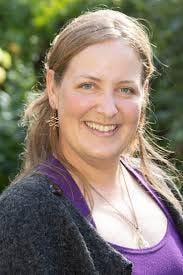The First Mark of a New Monasticism
Abandoned places of Empire
Understand Physical Realities
Accept and Adapt
Live within Gaia
Some years ago John Michael Greer stated that, as complex societies decline and enter a Dark Age, there is a rise in monasticism.
This thought is definitely true for the decline of the Roman Empire. Men such as Benedict of Nursia created a system that, in many ways, kept western culture alive for centuries. However, I am always interested in confirmation of this thesis.
Today, Dr. Bethany Sollereder of the University of Exeter presented the Posbury St. Francis Annual Lecture. Its title was Radical Hope: the roots of courage in inevitable climate change. Dr. Sollereder talked about how monasticism is one response to ‘inevitable climate change’. A screen shot of one of her slides is shown below. As you can see, she identifies ’12 Marks of New Monasticism’.
The first of these ‘marks’ is,
Relocation to the ‘abandoned places of Empire’ [at the margins of society].
When the Roman Empire was declining there were plenty of ‘abandoned places’ to which monks could migrate and build their new way of life. Moreover, those places provided good agricultural land and the climate was moderate.
In our world, as the climate changes, there will be no shortage of ‘abandoned places’. The catch will be that these places will not be suitable for sustained living. They will be too hot or too wet or exposed to rising sea levels. Even if the climate is able to support human life and agriculture, they will often be inaccessible. There will be limited diesel fuel for transportation (road and rail) and many of the rivers will no longer be navigable.
Which brings us to another of Greer’s theories is that the Great Lakes region (what we now call the rust belt) will become economically prosperous because it will be a transport hub (as it was 100 years ago), and the climate will be relatively benign.
So, maybe our future Benedict will build his monasteries in today’s Buffalo, Toronto, Chicago, Milwaukee and Baltimore.




There is a book by that title. I can share it with you if you like.